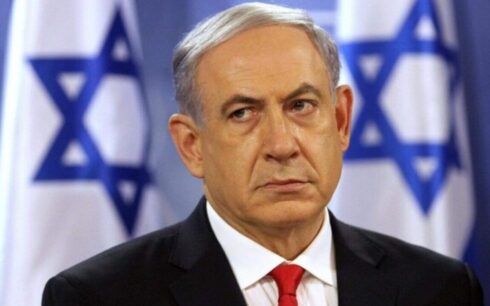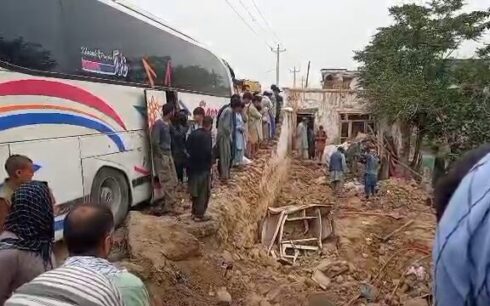Heads of state attending the 9th Organization of Turkic States (OTS) summit in Uzbekistan adopted a lengthy declaration on Friday that includes the decision to establish permanent dialogue with the Taliban.
The declaration stated the leaders welcome “the initiative of Uzbekistan to establish a permanent dialogue with the
authorities of Afghanistan, namely a High-level International Negotiating Group on Afghanistan for preparation and coordination of an algorithm for the phased fulfillment of the obligations of the parties.”
Earlier Friday, Uzbek President Shavkat Mirziyoyev raised concerns about the security situation in neighboring Afghanistan and called for across-the-board, regular, dialogue on the country’s situation.
Speaking at Samarkand summit Mirziyoyev said: “Of course, we are all seriously concerned about the situation in neighboring Afghanistan today. … We advocate for a regular dialogue between the foreign ministers of the organization’s member countries in order to develop common approaches to the Afghan issue.”
In addition, OTS leaders, from Azerbaijan, Kazakhstan, Kyrgyzstan, Türkiye, and Uzbekistan, underlined their support for an inclusive and representative political system, “which upholds fundamental human rights in Afghanistan.”
The declaration noted that the leaders also “express their deep concern regarding the dire economic and humanitarian situation in Afghanistan, stress the importance of addressing the substantial challenges facing Afghanistan’s economy and call on international community to strengthen efforts to provide humanitarian assistance to Afghanistan.”
OTS leaders also agreed to enhance their cooperation in fighting terrorism in all its forms, extremism, drug trafficking and separatism as well as enhance cooperation to combat irregular migration, including migrant smuggling and human trafficking.
Addressing leaders on Friday, Erdogan in turn said OTS countries were “going through a sensitive period that bears opportunities as well as risks for our countries. During this period, it has become more critical to strengthen our cooperation, solidarity and harmony in all fields.”
He pointed out that since 2014, Turkey has hosted possibly the largest number of refugees in the world. “We believe it would be beneficial to expand cooperation in the prevention and management of irregular migration,” he said adding that within this scope, it would be advisable for OTS to develop a common security concept and continue security council secretary meetings.
He also stated that the top priority should be ensuring regional security.
Mirziyoyev meanwhile stressed the need to keep an eye on the situation in Afghanistan.
“The issue of resolving the situation in this country should not leave our field of view,” he said.
Meanwhile, Gurbanguly Berdymukhamedov, Turkmenistan’s former president, stressed the need for regional countries, especially Turkic states, to help rebuild Afghanistan.
He said that Turkic states should move to address the humanitarian crisis in Afghanistan.
UNGA also adopts declaration
The OTS summit came a day after the United Nations General Assembly painted a grim picture of life under the Taliban.
In a speech to UN ambassadors in New York, President of the UN General Assembly, Csaba Korosi, said that there was “a moral and also a practical imperative for the international community to support an inclusive and sustainable peace in Afghanistan.”
Beyond the disastrous humanitarian and human rights situation, he said the country was now “awash with heroin and opium.”
“Organized crime and terrorist organizations are thriving once again. Afghanistan is facing complex and interlinked challenges that the Taliban have shown they cannot – or would not – solve,” he added.
Amid the economic meltdown, he pointed out the shocking fact that narcotics constitute the biggest sector in the country, with the UN Office on Drugs and Crime, revealing a 32 percent growth in illegal opium cultivation.
“We know where these drugs are sent. And we know who profits from these drugs. The threat from drug trafficking is linked with the threat of terrorism, regional and global security.”
He said Taliban leaders needed to engage in serious dialogue about counter-terrorism to reverse the flow of foreign extremists into the country – and prevent their own from becoming foreign terrorist fighters elsewhere.
“Afghanistan must never again become a breeding ground and safe haven for terrorists,” he said.





